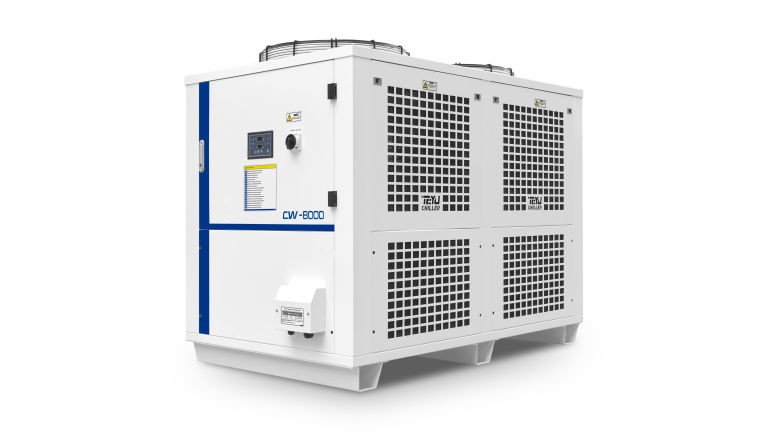Introduction
Industrial Water Coolers are high-performance systems designed to remove heat from industrial processes, machinery, and electronic systems using water as the cooling medium. These coolers are essential in modern industries where temperature control plays a vital role in operational efficiency, product quality, and equipment longevity. Whether used in heavy-duty manufacturing lines, cleanroom environments, or pharmaceutical production, industrial water coolers deliver consistent and reliable cooling—even under extreme workloads.
Engineered for rugged environments, these systems typically include chillers, pumps, storage tanks, and control units all working together in a closed-loop system. By regulating temperatures precisely, they help prevent overheating, reduce energy consumption, and eliminate production downtime.
Key Benefits of Industrial Water Coolers
Superior Thermal Performance
Industrial water coolers are engineered to handle extreme heat loads generated during heavy-duty operations. Their ability to maintain precise fluid temperatures ensures optimal thermal stability. This protects sensitive machinery such as laser optics, hydraulic circuits, and semiconductor systems, improving product quality and production reliability. The consistent cooling also enhances the lifespan of expensive equipment and prevents thermal fatigue.
Round-the-Clock Operation
These coolers are specifically designed for 24/7 performance in demanding industrial environments. Components like scroll or screw compressors, stainless steel piping, and weatherproof electrical panels allow continuous, trouble-free operation. Whether it’s a high-ambient foundry or a cleanroom, industrial water coolers are built to perform reliably over long shifts and varying load conditions without overheating or performance drops.
Closed-Loop Cooling
In a closed-loop cooling system, water is continuously recirculated through the heat exchanger and process equipment, preventing exposure to airborne contaminants, scale formation, and evaporation losses. This ensures the coolant remains clean and effective for extended periods. It also prevents corrosion, bacterial growth, and system fouling—cutting down on downtime and saving water resources.
Energy-Efficient Design
Energy-saving components such as variable frequency drives (VFDs) on pumps and fans, EC (Electronically Commutated) motors, and inverter-based compressors dynamically adapt to real-time load demands. Combined with efficient heat exchangers and advanced insulation, these systems significantly reduce power consumption—especially during partial load conditions. Many modern coolers also meet international energy efficiency standards such as ISO 50001 and ASHRAE guidelines.
Versatility Across Industries
These coolers are compatible with various industrial processes. They can work with a range of heat transfer fluids—pure water, brine, glycol-water mixtures, and special cooling oils. This makes them suitable across:
- Injection molding
- Laser systems
- Electronics fabrication
- Battery production
- Welding & metal fabrication
- Food and dairy processing They also come in air-cooled, water-cooled, and hybrid configurations depending on site requirements and cooling media availability.
Digital Temperature Control
Advanced control systems such as PLC-based logic controllers or touchscreen HMI (Human Machine Interface) panels allow precise setpoint management. Remote access via Ethernet, Modbus, or IoT platforms enables real-time monitoring, alarms, fault logging, and troubleshooting. Features such as auto-start/stop, flow monitoring, and self-diagnostics increase operational efficiency and minimize human intervention.
Innovations in Industrial Water Coolers
Smart Monitoring & IoT Integration
With IoT-based platforms, users can monitor performance metrics such as inlet/outlet temperature, flow rate, power consumption, and refrigerant pressure from any location. Predictive maintenance using machine learning algorithms can detect potential faults before they occur, reducing emergency repairs and downtime.
Hybrid Cooling Systems
Combining air-cooled and water-cooled technologies, hybrid systems switch cooling modes based on ambient conditions or energy availability. For example, air cooling may be used during cooler nights, while water cooling kicks in during peak hours—maximizing efficiency while reducing water and power usage.
Environment-Friendly Refrigerants
To meet global climate commitments, many chillers now use eco-friendly refrigerants such as:
- R-410A (Non-ozone-depleting, high-efficiency)
- R-32 (Lower GWP than R-410A)
- R-290 (Propane) or R-717 (Ammonia) in specialized applications This shift supports compliance with Montreal Protocol and Kigali Amendment targets for sustainable refrigeration.
Self-Cleaning Features
Built-in auto-flushing valves, anti-scaling chemicals dosing systems, and microbubble generators can prevent mineral scaling and biofilm buildup. These features reduce the need for manual intervention and extend service intervals—especially useful in regions with hard water.
Industrial Applications
Plastic Injection Molding
Prevents warping, shrinkage, or defects in molded parts by maintaining mold temperature during injection and cooling phases.
Hydraulic Systems
Keeps oil temperatures within the ideal range to avoid fluid degradation, component wear, and pressure loss in power packs and presses.
CNC & Laser Machines
Essential for keeping high-speed spindles, cutting heads, and power modules cool, ensuring dimensional accuracy and protecting sensitive electronics.
Chemical & Pharmaceutical
Used for jacketed vessels, condensers, and fermenters to maintain strict temperature requirements for reactions and production consistency.
Welding & Induction Heating
Removes excess heat from welding torches, transformers, or induction coils, preventing component overheating during continuous duty.
Conclusion
Industrial water coolers are essential components in modern manufacturing and processing industries. Their ability to deliver consistent cooling performance, energy efficiency, and process stability makes them indispensable across diverse sectors—from plastics and pharmaceuticals to automotive and electronics. With innovations like IoT integration, eco-friendly refrigerants, and modular plug-and-play designs, these cooling systems have evolved into smart, sustainable, and scalable solutions.
Choosing the right industrial water cooler not only ensures equipment longevity and product quality but also reduces operating costs and environmental impact. As industries continue to demand greater efficiency and precision, investing in an advanced industrial water cooler is not just a support system—it’s a strategic asset for long-term operational excellence.

